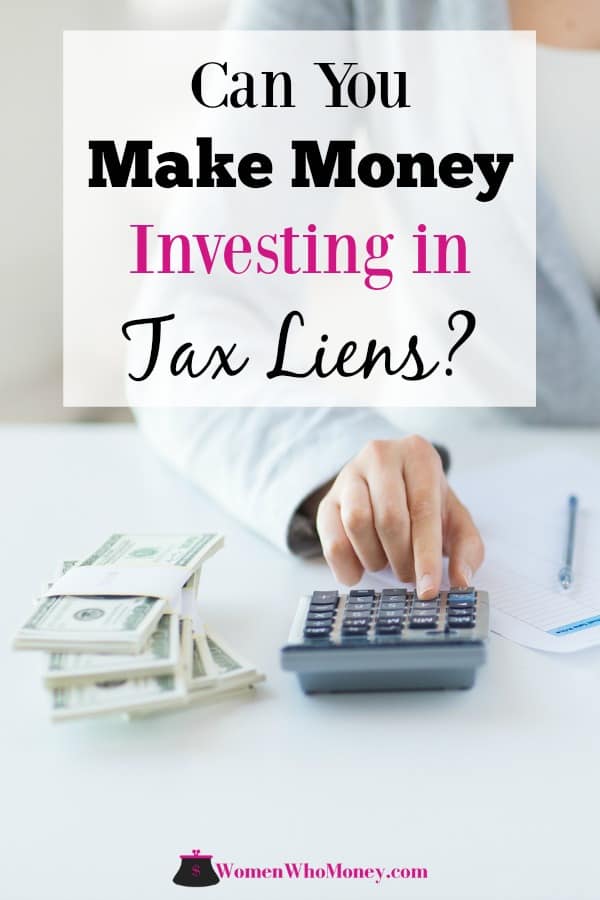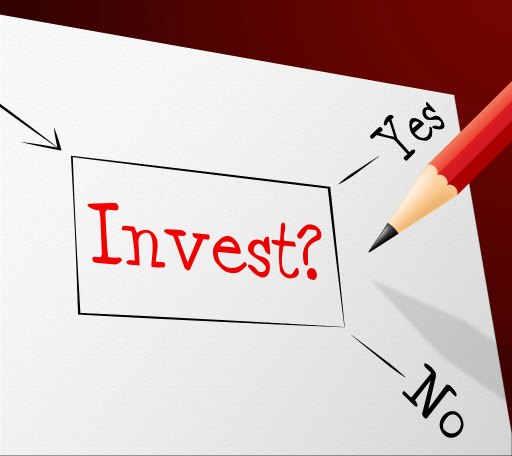How To Make Money On Tax Lien Certificates
(Please note, this page may contain affiliate links and we may earn fees from qualifying purchases at no additional cost to you. These earnings help us offset the cost of running this site. Read our Disclosure and Disclaimer for further info.)

You want to diversify by adding some alternative investments to your portfolio. As you research options to help you build wealth, your interest in real estate investing grows.
You have many opportunities to consider.
- Does buying a single-family rental make sense?
- Should commercial real estate be on your radar?
- Is joining a Real Estate Investment Club a good idea?
- Passive investing in Real Estate Investment Trusts (REIT's) might be better than buying physical property.
But hearing about tax lien investing has you wondering if it's a good way to make money.
What is a Property Tax Lien?

When you purchase a home or vacant lot, you'll be required to pay property taxes.
Property taxes fund a municipality's public safety and services, schools, roads, parks, libraries, and more.
If a property owner fails to pay taxes, the city or town government can make a legal claim or "lien" against the property for the amount owed.
For the municipality to recover the money the property owner hasn't paid, they sell tax lien certificates to investors.
The delinquent home or landowners then have a period of time (usually six months to three years) to pay the investor the tax, penalties, and interest owed.
If they fail to pay off the delinquent amount, the investor can foreclose on the lien.
The property owner cannot sell or refinance their home or land without paying the tax lien off.
How Buying a Tax Lien Certificate Works
The National Tax Lien Association (NTLA) is a non-profit professional trade organization for the tax lien industry.
Yahoo reports market research done by the NTLA showed over $14 billion in unpaid property taxes in the United States. Around 30% of that debt is sold to investors.
Property tax liens are not for sale in every state, however. You can find out the "tax lien states" using this resource from the NTLA.
People bid on tax liens at public or online auctions which are usually held annually by a municipality.
If you have an interest in investing in a specific location, check with the city or county treasurer to find out when they hold tax lien auctions.
Depending on the auction, investors bid down the interest rate or bid up the cash they'll pay for liens. State regulations may limit the interest rate investors can earn.
Because the process differs around the country, it's important to understand how to bid on tax liens. You may need to register well in advance of the auction and pay a registration fee.
Also, be aware tax lien auctions are highly competitive in many areas of the country. Bidding wars drive down the rate of return for investors.

Benefits of Investing in Tax Liens
You don't need to be a real estate agent or have a business to invest in tax liens. Anyone with the money to pay the minimum amount established by the city or county can bid.
The important thing is to have a thorough understanding of tax liens and the risks involved before you consider this type of investment.
Here are some other possible benefits:
1. Diversification
Investing in tax liens can diversify your portfolio while offering an average of 3-7% interest rates.
Finding liens with above-market interest rates is definitely possible, but lots of competition or additional risk needs to be taken into account.
2. Payoff
In most cases, you'll get your money back.
To avoid foreclosure, most property owners pay off tax lien certificates. When the property owner pays, you get paid.
CNBC reported NTLA figures of around 6% of tax liens ending up in a foreclosure situation. And only .5% of those are not redeemed before the foreclosure is complete.
3. Potential
If you do end up successfully foreclosing on your tax lien, you may have bought a property for a fraction of its worth!
Drawbacks to Tax Lien Investments
Keep in mind that just because you have the money, it doesn't mean tax liens are the right alternative investment for you.
Many people are attracted to tax liens because they see the potential for high rates of return.
Others think tax liens are passive real estate investments.
Some believe these properties are usually foreclosed on, resulting in them ending up with the property.
There are plenty of reasons to take your time before you jump into tax lien investing.
Here are more drawbacks to consider:
1. Homework
To make a smart tax lien investment, the due diligence takes time. You need to:
- review the properties on the list
- determine if other liens exist against the property (to avoid title issues in foreclosure)
- price sales for similar properties
- decide what interest rate you're willing to bid down to or what price you're willing to pay at the tax lien auction
This may take a lot more work than you realize – especially as a new tax lien investor. Tax liens are active investing.
2. Details
Winning bidders need to understand the details of the tax lien certificate – including repayment schedules and expiration dates.
To avoid others having a claim on the property, you may end up having to pay property taxes in future years too.
3. Costs
Successful forecloses on a property may require you to spend a significant amount of money.
If the property owners weren't paying their taxes, they probably weren't maintaining the property well either.
It might cost tens of thousands of dollars to make repairs so you can rent or sell the property.
Substantial legal fees for the foreclosure and eviction of anyone living at the property should be considered as well.
Are Tax Liens a Good Way To Make Money?
If investing in tax lien certificates wasn't a good way to make money, there wouldn't be much competition for them.
But based on all the drawbacks explained above, you can see why they aren't a good alternative investment for people without some real estate experience.
New investors see long lists of properties having delinquent taxes and get excited about the investment potential.
Later, they realize that list narrows considerably because property owners pay taxes, interest, and penalties they owe before the auction date.
And after researching the properties left on the list, some people give up thinking tax lien investing is a good idea.
If you're interested in investing in tax liens but aren't interested in doing all the work involved, using a tax lien fund investing manager is also an option. But for inexperienced investors, this can still be a very risky move.
Take the time to learn about tax liens in your state, before including them in your portfolio. Otherwise, research different alternative investments that fit your risk tolerance better.
Suggested:
- A Worthy Investment At 5% Fixed Interest? [Worthy Bonds Review]
- Are Precious Metals A Good Alternative Investment?
- Is Investing In Fine Art Possible For Me? [A Masterworks Review]

Vicki and Amy are authors of Estate Planning 101, From Avoiding Probate and Assessing Assets to Establishing Directives and Understanding Taxes, Your Essential Primer to Estate Planning, from Adams Media.
Amy Blacklock and Vicki Cook co-founded Women Who Money in March 2018 to provide helpful information on personal finance, career, and entrepreneurial topics so you can confidently manage your money, grow your net worth, improve your overall financial health, and eventually achieve financial independence.
How To Make Money On Tax Lien Certificates
Source: https://womenwhomoney.com/tax-lien-investing-make-money/
Posted by: dementchousion93.blogspot.com

0 Response to "How To Make Money On Tax Lien Certificates"
Post a Comment